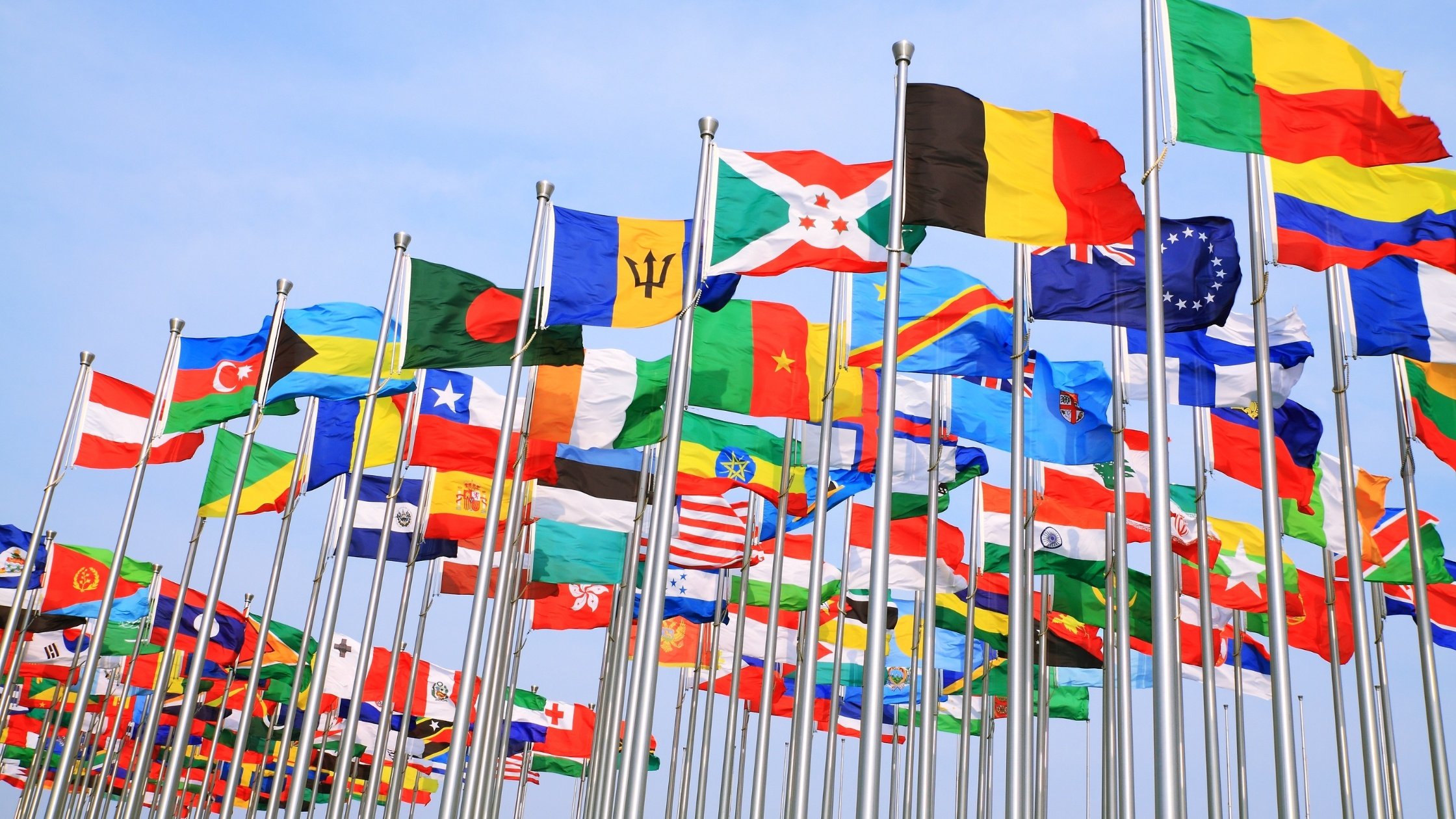Why Language Learning Is Essential in Today's Multicultural World
According to the CIA World Factbook, approximately 45% of the world population speaks one of the UN languages (English, Chinese (Mandarin), Spanish, (Modern Standard) Arabic, French, and Russian) either natively or as a second language.
These ones make up more than half the world’s official languages. Furthermore, 96% of the world population speaks 4% of the world’s 7000+ modern languages. Thus, effort exerted in learning a few top world languages can help unlock the world.

Most-Spoken Languages
Either as a first or second language
English
Mandarin Chinese
Hindi
Spanish
Arabic
What Are the Benefits of Multilingualism?
Stereoscopic vision of two eyes is better than that of one alone. Similarly, a personal version of reality is less likely to be as accurate as a composite version. The perspective of a person is less likely to be as accurate as that which considers the perspective of all.
Each language of the world provides a window to the ultimate reality. Knowing multiple languages opens our minds to different perspectives of the same ultimate reality. Each language has a color to lend to the kaleidoscope of reality we all share. Knowing multiple languages allows us to see different facets of an issue. It fosters understanding and a more balanced holistic approach to solving problems.

The Shift to a Multipolar World: Embracing the Power of Cultural Diversity
With the end of the Second World War, as colonialism dawned to a close in the last century and the collapse of Communism, ideologically, the world is transitioning from the triumph of Western capitalist neocolonialism into a more multipolar global community of equals.
The dominance of European colonial languages is increasingly being shared by those of new emerging cultures. Today, emerging world economic powers like Argentina, Australia, Brazil, Canada, China, India, Indonesia, Japan, South Korea, Mexico, Russia, South Africa, Turkey, and the Arab Gulf states are increasingly exerting their influence as compared to traditional powers like the United States, the UK, and the European Union. This has led to the global popularity of non-traditional world languages.
From Local to Global: Cultural Diversity as the New Norm
With advances in jet travel, communication technologies, immigration, global education, work, and international commerce, we are likely to interact more and more with people of different cultural backgrounds.
Our societies are more multiracial and multiethnic now. Our classmates, neighbors, work colleagues, and even our partners are increasingly from different parts of the world. It is becoming difficult to live in homogeneous societies like in the past. The world is shrinking, and cultural diversity is becoming the norm.

We see this more in certain places than in others. Tiny Switzerland has four official languages. Canada has two. North American, European, and Australasian urban areas are magnets for immigrants and refugees from all over the world. Guest workers are common in certain countries like Japan, South Korea, Malaysia, Singapore and the Arab Gulf countries. Such trends are bound to increase, and it becomes difficult for more linguistically homogeneous societies like Turkey to stay unaffected by linguistic influences from other parts of the world.
Multinational companies operate all over the world, buying raw materials in some countries and processing them in others while employing workers and managers from other places, with the markets of their products and services spread all over the world.
Language Learning Breaks Down Barriers in a Globalized World
Diplomatic staff are among the most eager to learn foreign languages as they know that one of the easiest ways to diffuse misunderstanding among people is by speaking with someone in their native language.
Language acquisition is a cure for xenophobia. As the world shrinks, knowing other languages becomes a requirement for more and more people. Also, educational reform incorporates efforts to teach students more languages from earlier ages to reflect the increasingly polyglot interactions in the world.
With increasing globalization, a few key global languages, including the six official UN languages, have emerged, and there is a large population of speakers globally. Thus, many people have become more than willing to learn second, third, fourth, or even more languages to be part of the globalized world.

Learn New Languages With ReDefiners World Languages
ReDefiners World Languages is a non-profit organization that offers language education programming in Hillsborough County, Florida. Its mission is to equip and empower people to access new opportunities – from academics to careers – by teaching new languages.
As a non-profit organization, ReDefiners considers language learning a strategic investment and indispensable for the next generation of Americans to understand the world, offering free language classes for children, youth, and adults in English, Spanish, Chinese (Mandarin), and Arabic.
Learn a world language and open yourself to a new perspective! Commit to holistic understanding in a fast, globalizing world by booking your place in language courses at ReDefiners World Languages. For more information, contact ReDefiners World Languages at 813-530-2313 or info@redefinerswl.org.
Subscribe to Our Blog
Continue Reading
.png?width=900&name=Gauthier%20Academic%20Achievers%20Student%20(1000%20x%20333%20px).png)
The Transformative Power of Your Donation

-1.png?width=180&height=50&name=OfficialLogo(navy)-1.png)


.webp)